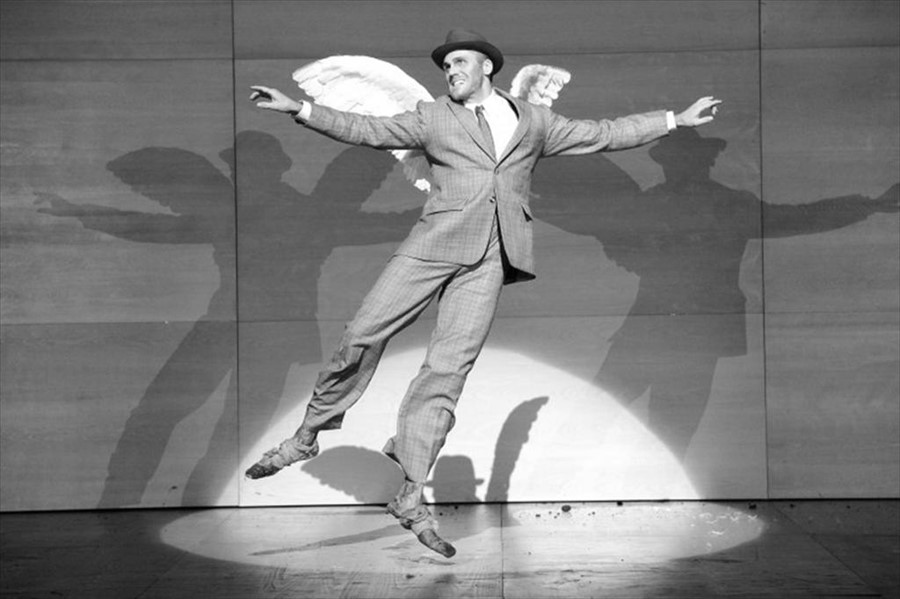AnOther's Classical, Opera & Contemporary Music columnist Sir Norman Rosenthal, picks his highlights for December including one final performance of Castor and Pollux, Sir Mark Elder conducting Berlioz's L'Enfance du Christ and much more...
December is, by the normally over-rich diet of London, a relatively meagre month. Serious and stimulating music things start to wind down in what one can perhaps describe as an overindulgence of Messiahs and Nutcrackers. No lack of choice for these two musical masterpieces, usually, but not always, given mediocre performances. Many years ago, when I was young and alone in London, I realised that a great Russian conductor, Gennadi Rozhdestvensky, was conducting Tchaikovsky's wonderful Nutcracker at the Royal Ballet. In those days, I was not interested in Ballet at all (I am now!) but as it was the only music on in London, I think I bought myself the cheapest ticket, never saw the stage, and only listened to the wonderful orchestra. It was a memorable musical moment which I repeated three or four times. Things are not quite as bad as that these days, and carefully examining the form cards of the various venues in London – all easily accessible on the internet – one can still find much good music this December.
"Castor and Pollux, which I have already heard twice at English National Opera, is simply one of the best opera evenings I have spent in London for a very long time"
The first is in fact a leftover from November, which receives one final performance tomorrow, Thursday December 1, and is something I cannot recommend too strongly to anybody interested in modern music theatre. Castor and Pollux, which I have already heard twice at English National Opera, is simply one of the best opera evenings I have spent in London for a very long time. Directed by the controversial Australian-born Barrie Kosky, this musical masterpiece by the great French baroque composer Rameau, is brilliantly conducted, has extraordinary singer-actors, who together with the chorus, are directed within a set from which there seems to be no escape either for entrances or exits, in a manner that recalls the best stagings of the legendary German Ballet choreographer, Pina Bausch. Classical drama in this case, revolving around a story of brotherly love, that ultimately triumphs over romantic love, is brought up to date in a manner that feels both politically, socially, and above all, visually and musically relevant. It has been savaged by all of London's chattering upper classes, but that is all the more reason to check it out. Kosky has just been appointed director of the Komische Oper – the opera house in Berlin, which for decades has continuously led the world in imaginative opera production. And if this is anything to go by, the future of that institution is something to watch.
At the Royal Opera House there is a run of performances starting on December 19 of The Mastersingers of Nuremberg. There is a very good cast, being conducted by Tony Pappano, and listening to Richard Wagner's comic masterpiece will certainly be hugely pleasurable. Magical Night is an hour-long opera about a children's dream in which dolls come to life, written by Kurt Weill in 1922. It has been rediscovered after being assumed to be lost, and is being performed at the Linbury Theatre.
On the South Bank, at the Royal Festival Hall, there are still some good concerts to hear. I particularly recommend Vladimir Jurowski conducting a wonderful programme including Juilan Anderson's Fantasias for Orchestra. Anderson is one of the most talented of young British composers, and the rest of the programme, with the London Philharmonic Orchestra, including Tchaikovsky's Manfred Symphony, will give pleasure. In the Queen Elizabeth Hall, on December 7 and 8 respectively, there is first a stimulating recital by the virtuoso yet intellectual pianist, Pierre-Laurent Aimard, playing seven major works by Liszt, Wagner, Berg and Scriabin, which he will probably play asking for no applause between any of the pieces, creating a very special atmosphere. On the following night, Sir Mark Elder is conducting Berlioz's L'Enfance du Christ – Christmas music at its most sublime and sophisticated. At the Barbican on December 15, Beethoven's 1st and 9th Symphonies, conducted by Sir John Elliot Gardiner, is definitely something to get to. And there are, as ever, lots of attractive concerts at the Wigmore Hall. The venue is anticipating the 75th Anniversary of the death of Maurice Ravel, the French Impressionist composer of the famous Bolero, with concerts of quartets and songs on December 8 and 14, with outstanding musicians. On December 11, Rachmaninov's Symphonic Dances (his last work), and Stravinsky's Rite of Spring, works normally performed by big orchestras, are being performed by a piano duo, which can sound just as extraordinary. And there are no end of piano trios, quartets and singers, all with great programmes – Anna Antonacci, Anne Schwanewilms, Thomas Allen, Veronique Gens, Bernada Fink, Sophie Daneman, Ian Bostridge, Artemis Quartet, the Nash Ensemble, the Razumovsky Ensemble, Quatuor Ebene, Guarneri Trio Prague, the Elias Quartet – all world stars.
One last concert that arouses my curiosity is taking place at Kings Place on December 12, I have never heard Ensemble Amorpha, but their credentials are good, and their programme of music, old and new, to accompany silent films also old and new, makes me want to go. It includes music by George Benjamin, another great younger British composer, and on occasions when he chooses to do it, a legendary improvising film accompanist.
Norman Rosenthal spent more than thirty years as director of exhibitions at the Royal Academy of Arts. Since he was nine-years-old, he has been haunting London's many concert and opera venues, large and small, absorbing classical, opera and contemporary music, all of which he enjoys in equal measure.
